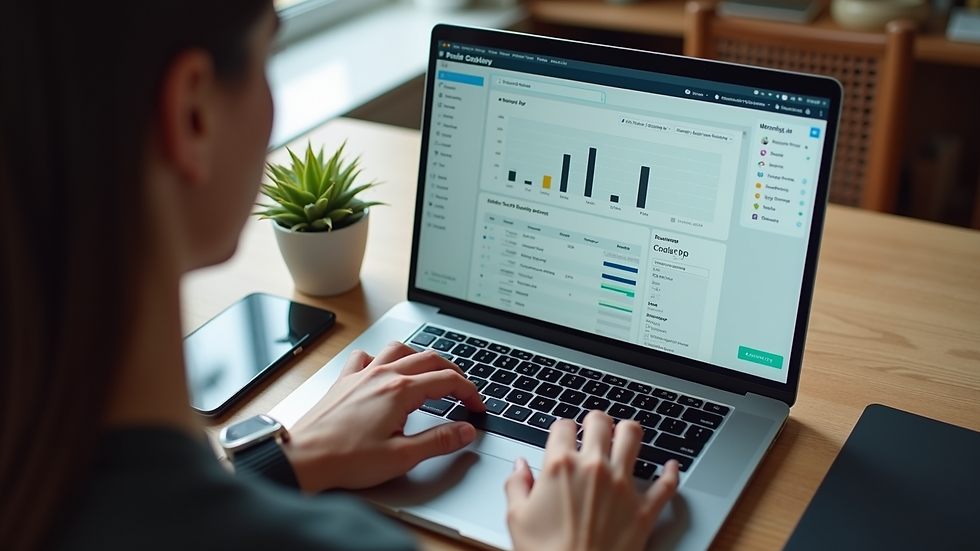Maximising Event Marketing Impact
- Nov 17, 2025
- 4 min read
When it comes to hosting a successful event, the way you market it can make all the difference. Event promotion techniques are essential tools that help you reach your target audience, generate excitement, and ultimately boost attendance. Whether you are organising a small workshop or a large conference, mastering these techniques will ensure your event stands out in a crowded marketplace.
Understanding the Power of Event Promotion Techniques
Event promotion techniques are strategies used to communicate the value of your event to potential attendees. These techniques can range from digital marketing to traditional advertising, and each plays a vital role in creating awareness and driving engagement.
Why Focus on Event Promotion Techniques?
Increase Visibility: The more people know about your event, the higher the chances they will attend.
Build Anticipation: Effective promotion creates buzz and excitement.
Target the Right Audience: Tailored techniques help you reach those most likely to be interested.
Maximise ROI: Smart promotion ensures your marketing budget is well spent.
Examples of Successful Event Promotion Techniques
Social Media Campaigns: Using platforms like Facebook, Instagram, and LinkedIn to share engaging content and updates.
Email Marketing: Sending personalised invitations and reminders to your mailing list.
Collaborations: Partnering with influencers or other brands to expand reach.
Content Marketing: Publishing blog posts, videos, or podcasts related to the event theme.

Crafting a Winning Event Promotion Strategy
A well-structured strategy is the backbone of any successful event marketing campaign. Here’s how to build one that works:
1. Define Your Goals and Audience
Start by clarifying what you want to achieve. Is it ticket sales, brand awareness, or lead generation? Then, identify your ideal attendees by demographics, interests, and behaviours.
2. Choose the Right Channels
Not all channels suit every event. For example, a tech conference might thrive on LinkedIn and Twitter, while a music festival could benefit more from Instagram and TikTok.
3. Create Compelling Content
Your content should highlight the unique aspects of your event. Use:
Engaging visuals
Clear calls to action
Testimonials or past event highlights
4. Leverage Paid Advertising
Boost your reach with targeted ads on social media or Google Ads. Use precise targeting options to focus on your audience.
5. Monitor and Adjust
Track your campaign’s performance using analytics tools. Adjust your tactics based on what’s working best.
Leveraging Technology for Event Promotion
Technology has revolutionised how events are marketed. Using the right tools can streamline your efforts and enhance results.
Event Management Platforms
Platforms like Eventbrite or Cvent simplify registration and promotion. They often include built-in marketing features such as email campaigns and social sharing.
Social Media Scheduling Tools
Tools like Hootsuite or Buffer allow you to plan and automate posts, ensuring consistent communication without manual effort.
Analytics and Tracking
Google Analytics and social media insights help you understand audience behaviour and campaign effectiveness.
Virtual and Hybrid Event Tools
With the rise of virtual events, platforms like Zoom, Hopin, or Microsoft Teams offer integrated marketing options to engage online attendees.

Integrating Offline and Online Event Promotion Techniques
While digital marketing is powerful, combining it with offline methods can maximise your event’s reach.
Offline Techniques to Consider
Flyers and Posters: Place them in strategic locations frequented by your target audience.
Networking Events: Attend related events to spread the word personally.
Press Releases: Get local media coverage to increase credibility.
Direct Mail: Send personalised invitations or brochures.
How to Blend Both Approaches
Use QR codes on printed materials to direct people to your event website.
Promote offline events on social media to attract a wider audience.
Collect email addresses at physical events for future digital campaigns.
Tips for Maximising Engagement Before, During, and After the Event
Engagement is key to a memorable event experience and future success.
Before the Event
Countdowns: Create excitement with countdown posts.
Sneak Peeks: Share behind-the-scenes content.
Interactive Content: Polls, quizzes, or contests related to the event.
During the Event
Live Streaming: Reach those who cannot attend in person.
Real-Time Updates: Share photos and highlights on social media.
Audience Interaction: Use apps or hashtags to encourage participation.
After the Event
Thank You Messages: Show appreciation to attendees.
Surveys: Gather feedback to improve future events.
Content Sharing: Post event recordings, photos, and summaries.
By implementing these strategies, you can create a lasting impression and build a loyal community around your events.
Unlocking the Potential of Effective Event Marketing
To truly maximise your event marketing impact, it’s important to adopt proven methods that have been tested and refined. The concept of effective event marketing involves a holistic approach that combines creativity, technology, and data-driven decision-making. By embracing this mindset, you can elevate your event promotion techniques and achieve outstanding results.
Mastering event promotion techniques is essential for any event organiser looking to make a significant impact. By understanding your audience, crafting a strategic plan, leveraging technology, and blending online and offline methods, you can ensure your event not only attracts attendees but also leaves a lasting impression. Start applying these practical tips today and watch your events thrive.














Comments